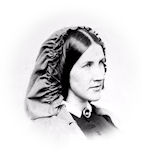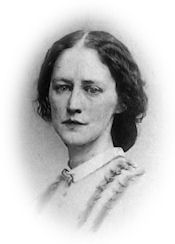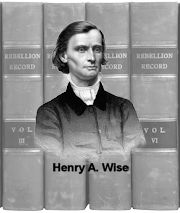Georgeanna’s Journal.
March 10.
All strange rumors come on Sunday. Josepha Crosby, Hatty and I went down to spend the afternoon at the Patent Office Hospital. During the week the camps had been emptied of convalescents, sent north to recover, and their places in the hospitals were occupied by others. The Patent Office is full again; four rows of beds and very sick men in them. I stooped down between two 8th New York Cavalry men in their little cots while they told me that their regiment had moved off silently on Saturday night. Coming away, I hurried up to Mrs. Captain Rodgers’ house and heard the story of the Merrimac fight. The first intimation they had of it was in church on Sunday morning, when, during service, a messenger came in and was seen to whisper something to General Meigs, who immediately left the church. A little while later General Totten was summoned, and then a Commodore somebody, by which time the congregation was in a state of suppressed excitement miserable to bear. Dr. Pine preached an unusually long sermon, and finally the people rushed out and heard the bad news.
While I was talking at the door with Mrs. Rodgers a four-horse ambulance was standing at McClellan’s door, and we sat down on the steps intending to see who got into it, and which way it went, a determination shared by plenty of other people on their way from church. At last a servant brought blankets, and McClellan and Franklin got in and started on their way over the Potomac; and then I came home, and presently Colonel McClure came in and told us that Heintzelmann, with whom he had been sitting an hour, expects to move in the morning and that Manassas was reported evacuated. Contrabands brought word of it to Kearney’s quarters; he made an armed reconnaissance and discovered the truth; word was sent to McClellan, and his ride on Sunday P. M. was in consequence. Mrs. Rodgers came in as we were in our petticoats, getting ready for bed, and confirmed it all.





